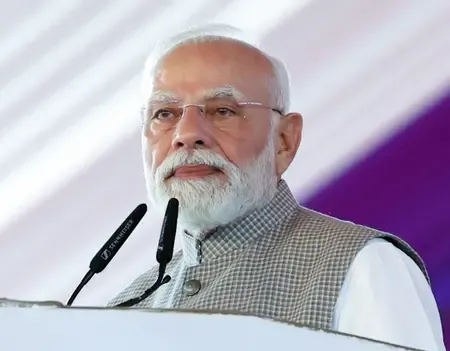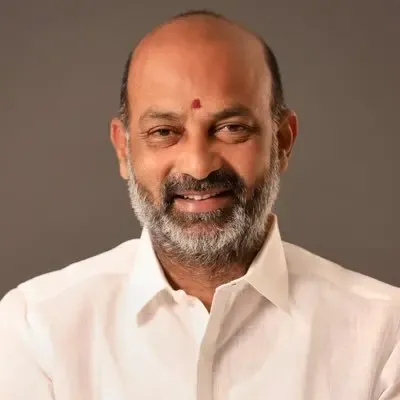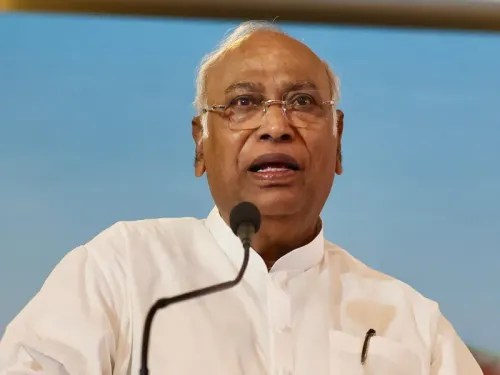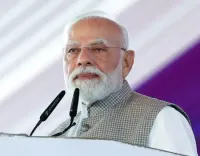Is Nitish Kumar the True Champion for Women’s Rights in Bihar While Tejashwi Yadav Struggles with His Legacy?
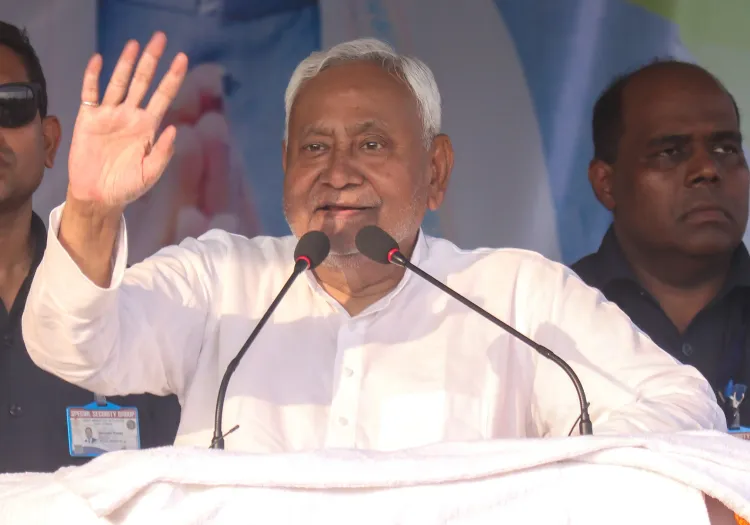
Synopsis
Key Takeaways
- Nitish Kumar has a strong track record of women-centric initiatives.
- Tejashwi Yadav attempts to reshape his narrative amidst a challenging legacy.
- The upcoming elections will heavily focus on women's empowerment.
- Political legacy plays a crucial role in voter perception.
- Women voters significantly influence electoral outcomes in Bihar.
New Delhi, Oct 31 (NationPress) The support that Bihar Chief Minister Nitish Kumar enjoys from women voters in the state is considered a significant contributor to his government’s past electoral victories. On the other hand, Tejashwi Yadav, the leader of the Rashtriya Janata Dal (RJD) and the proposed Chief Ministerial candidate from the Opposition Mahagathbandhan, is attempting to incorporate initiatives focused on women’s empowerment. However, he is encumbered by a history that contradicts this mission.
His father, Lalu Prasad, notably played a role in obstructing the Women’s Quota Bill during the late 1990s, which resulted in its failure to pass in Parliament. With assistance from Samajwadi Party leader Mulayam Singh, and with only 37 MPs backing him, he skillfully influenced leaders from other political parties, including the Congress, to prevent the bill from advancing.
Interestingly, Sonia Gandhi, a prominent Congress leader, had expressed her unwavering support for the Bill.
While Tejashwi strives to move past this legacy, Nitish Kumar has implemented various development projects aimed at women’s empowerment and self-sufficiency throughout his two-decade leadership in the state. As the leader of the National Democratic Alliance (NDA) in Bihar, he has garnered support from the Union government for his initiatives.
The joint manifesto of the ruling coalition, unveiled in Patna on October 31, underscores this commitment from NDA partners.
The manifesto includes the Chief Minister's women’s employment scheme, which offers financial aid of up to Rs 2 lakh, along with a commitment to ensure that one crore women become “Lakhpati Didis”.
Launched on August 15, 2023, by Prime Minister Narendra Modi, the Lakhpati Didi Yojana aims to uplift women, particularly those affiliated with Self-Help Groups (SHGs).
Previously, it was the Modi-led government that successfully passed the women's reservation through The Constitution (One Hundred Twenty-Eighth Amendment) Bill, 2023, in Parliament. The bill had been left unattended after the previous NDA government, under Atal Bihari Vajpayee, failed to advance the Women’s Quota Bill in 1998 due to fierce opposition from Lalu and Mulayam.
A significant uproar occurred in the Lok Sabha during the motion, with RJD MPs visibly protesting by tearing copies of the Bill. They found an ally in Sharad Yadav, a then Janata Dal MP. In 1997, while debating against the Women’s Quota Bill, Sharad controversially referred to the beneficiaries as “parkati auratein” (women with short hair) while advocating for caste-based reservations within the Women’s Bill. However, after aligning with Janata Dal (United), Nitish Kumar persuaded him to permit the Bill's passage in its current form and later address the quota issue.
Nitish Kumar has since highlighted his efforts to introduce quotas for women from diverse backgrounds within the state’s panchayati system.
This decision reportedly influenced Sharad Yadav’s viewpoint over time. Throughout this period, Nitish Kumar maintained that their disagreement was primarily on this issue, which he referred to as an “honest difference” of opinion.
During his extensive tenure in Bihar, Nitish Kumar has initiated numerous schemes to empower women, including 50% reservation in panchayats, 35% in government jobs, a cycle yojana for schoolgirls, and the establishment of self-help groups like Jeevika.
These initiatives have helped him forge a robust support base among women voters. Although Tejashwi has promised job security for nearly four lakh Jeevika community mobilizers and contractual workers, along with commitments for education and employment for girls, and providing housing, ration, and income for women, he still needs to overcome a challenging legacy. His efforts will be evaluated in the upcoming mandate on November 14 -- whether he can rise above his past or not.

